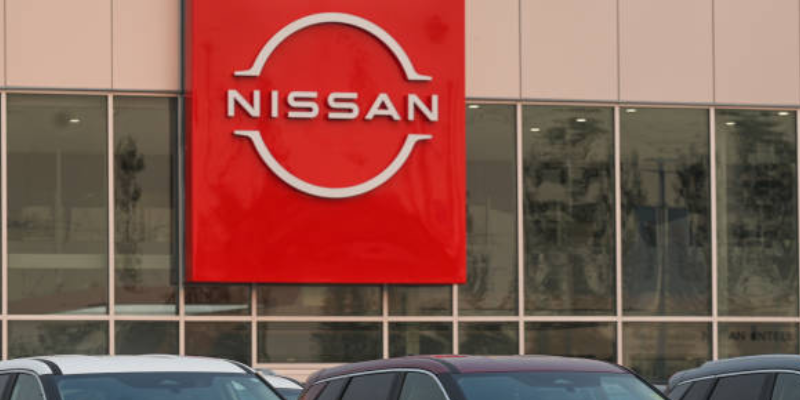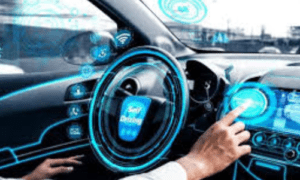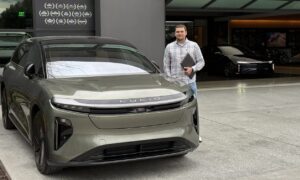Nissan will stop producing at its Changzhou facility, bringing its yearly output down by 130,000 units in the midst of a 10% decline in sales in China.
TakeAway Points:
- Nissan plans to stop manufacturing at its Changzhou facility due to a 10% drop in Chinese sales, resulting in a 130,000 unit reduction in yearly output.
- Following the US and EU’s example, Canada is thinking about imposing tariffs on Chinese electric vehicles in order to safeguard domestic production and employment.
- Asia-Pacific stock market reactions include a 0.6% dip in the CSI 300 index and a 1.6% decline in the Hang Seng index.
Nissan stops Production in China
Nissan Motor Co. announced it will halt production at its Changzhou plant in China due to declining sales in the world’s largest automotive market. The Japanese automaker’s sales in China fell by 10% in April, reaching only 54,921 units compared to the same period in 2023.
This decline is attributed to increasing competition from local manufacturers such as BYD Co. “Dongfeng Nissan has ceased production at our Changzhou plant and this is part of our optimization,” the company stated on Friday.
To regain its footing in the competitive Chinese market, Nissan plans to introduce eight new-energy vehicles and begin exporting cars manufactured in China by 2025. The company aims to ship 100,000 vehicles annually. Nissan is also targeting annual sales of 1 million units in China by March 2027, up from the current 800,000 cars per year.
According to a report by Nikkei, the closure of the Changzhou plant will reduce Nissan’s annual production by approximately 130,000 units, or more than 8% of its output in the country.
The U.S. Considers Tariffs on Chinese EVs
The Canadian government, led by Prime Minister Justin Trudeau, is contemplating new tariffs on Chinese-made electric vehicles (EVs) to align with similar actions taken by the United States and the European Union.
The U.S. announced plans in May to nearly quadruple tariffs on Chinese-manufactured EVs to a final rate of 102.5%, while the EU plans to increase tariffs to as high as 48% on some vehicles. “Unless we act fast, we risk Ontario and Canadian jobs,” Ontario Premier Doug Ford said, urging the federal government to match the U.S. tariffs.
The value of Chinese EVs imported by Canada surged to C$2.2 billion ($1.6 billion) last year, up from less than C$100 million in 2022, according to Statistics Canada. This increase is partly due to Tesla Inc. shipping Model Y vehicles from its Shanghai factory to Canada.
However, the Canadian government’s primary concern is the potential influx of inexpensive EVs from Chinese automakers, which could flood the market. Finance Minister Chrystia Freeland’s spokesperson, Katherine Cuplinskas, stated, “China has an intentional, state-directed policy of overcapacity. Protecting Canadian jobs, manufacturing, and our free trade relationships is essential.”
Global Impact
The potential tariffs have already impacted market sentiment. Asia-Pacific shares mostly fell, with Chinese stocks leading the decline. The CSI 300 index slid 0.6%, marking its fifth consecutive weekly loss, while the Hang Seng index dropped approximately 1.6%.
The yen hovered near the 159-handle against the dollar following Japan’s inflation report and a warning of possible intervention from Japan’s currency chief, Kanda. S&P futures remained tightly rangebound, while Nasdaq contracts gained about 0.1%. Other regional indices such as the Kospi and Taiex also saw declines, falling nearly 1% and 0.6%, respectively. In contrast, the Topix and ASX 200 indices posted modest gains, bucking the overall trend.
The Canadian government is also weighing the potential for Chinese trade retaliation. Some environmental groups argue that keeping EV costs low is crucial to encouraging higher consumer adoption.
Trudeau’s administration and Ontario’s government have committed billions to developing a domestic EV industry, from mining critical minerals for batteries to assembling cars and light trucks. This includes substantial subsidies for new factories proposed by Volkswagen AG, Stellantis NV, and Honda Motor Co.



































